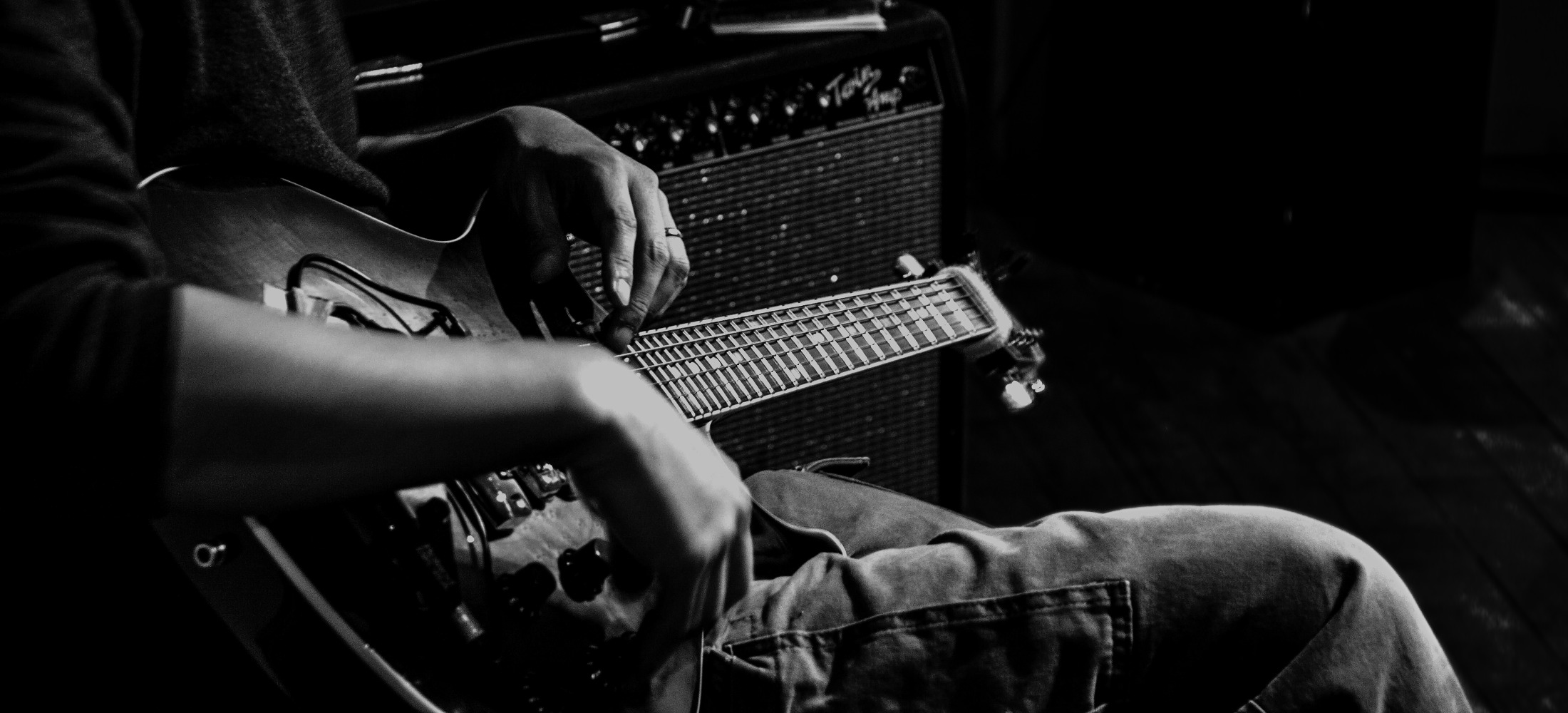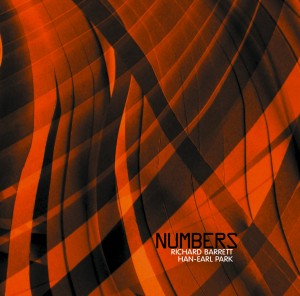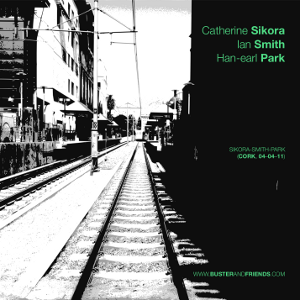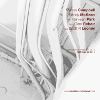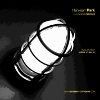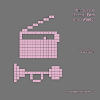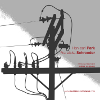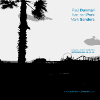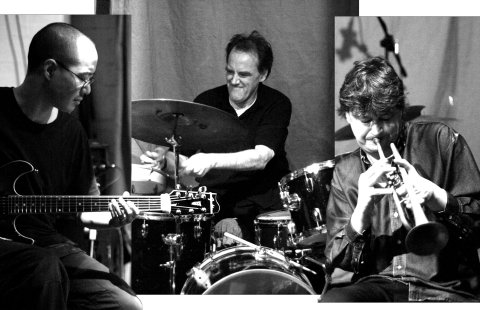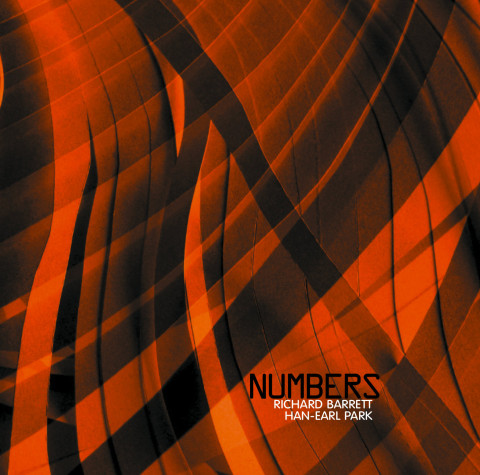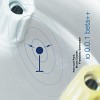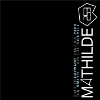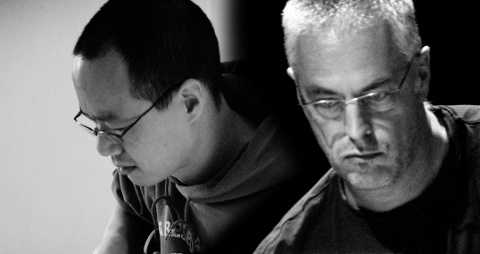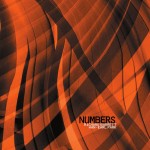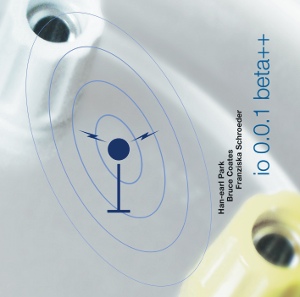Mathilde 253 (Charles Hayward, Han-earl Park and Ian Smith) was born out of an opportunity to explore the spontaneous mashup of avant-rock, African-American creative musics, European free improvisation and noise. Featuring special guest Lol Coxhill, the ensemble debuted at Cafe OTO (London) in April 2010. In March 2011, with support from Music Network, UCC School of Music, Note Productions, the National Concert Hall and the Cork Opera House, Mathilde 253 toured Ireland with the celebrated composer-improviser Ishmael Wadada Leo Smith.
The ensemble weaves a performance of physical virtuosity and humorous sound poetics; a patchwork of restraint, subtlety and recklessness. A playful collision of personal, social and musical histories, Mathilde 253 is a site where tradition and idiom are not straightjackets nor limitations, but playgrounds for real-time (re)inventions and (re)configurations.
Mathilde 253’s eponymous debut CD (SLAMCD 528) was released by SLAM Productions in January 2011.
“Smith favors long mongrelly growls and scales that ascend and descend in illogical ways, like the stairs in an M C Escher print. Hayward has a very distinct sense of time underneath the freedom…. This is an exciting new venture…. One can reasonably expect unexpected things from Park, who is a delightful shape-shifter and Smith always repays the closest attention, and claims it with sudden open-horn breakouts if the fabric of the music gets too smooth and uninflected. Great stuff….”
— Brian Morton (Point of Departure)
“Ordered and entwining… a tapestry of choice: that of another Mathilde, of a complete beauty.”
— Guillaume Belhomme (Le son du grisli)
Charles Hayward is known as the pioneering drummer with This Heat and Camberwell Now, an ever growing list of solo concerts and CDs (most recent release Abracadabra Information on Locus Solus label), special collaborative performances, and is in Massacre with Bill Laswell and Fred Frith.
Throughout the 90’s up to the present he has initiated a bewildering array of events and performances, including the widely acclaimed series Accidents + Emergencies at the Albany Theatre, Out of Body Orchestra (too much sound, not enough space, not enough time), music made from the sound of the new Laban dance centre being built which was choreographed for the official opening, music for a circus (part of the National Theatre’s ‘Art of Regeneration’ initiative), the full-on installation/performance Anti-Clockwise (with Ashleigh Marsh and David Aylward) for multiple strobes, maze structure of diverse textures, 2 drummers, synthesizers and your nervous system. Recent developements include the Continuity evenings as part of Camberwell Arts.
Committed to song ‘but the shapes have to change,’ his current one-man show is an intoxicating mix of percussive attack, swirling electronics and lyrical fragment collage.
“An unwavering belief in the power of the groove and an uncanny facility for generating one riff after another.”
— The Wire
“Telepathic magic…. Hayward is one of the most life-affirming people who stalks this dark globe.
— The Sound Projector
Improviser, guitarist and constructor Han-earl Park (박한얼) has been working within/from/around traditions of fuzzily idiomatic, on occasion experimental, mostly open improvised musics for over fifteen years, sometimes engineering theater, sometimes inventing ritual. He feels the gravitational pull of collaborative, multi-authored contexts, and has performed in clubs, theaters, art galleries, concert halls, and (ad-hoc) alternative spaces in Austria, Denmark, Germany, England, Ireland, The Netherlands, Scotland and the USA.
He is part of Mathilde 253 with Charles Hayward and Ian Smith, and is involved in collaborations with Bruce Coates, Franziska Schroeder, Alex Fiennes and Murray Campbell. He has recently performed with Ishmael Wadada Leo Smith, Lol Coxhill, Pat Thomas, Paul Dunmall, Mark Sanders, Matana Roberts, Richard Barrett, Pauline Oliveros, Thomas Buckner and Kato Hideki. Festival appearances include Sonorities (Belfast), Sonic Acts (Amsterdam), dialogues festival (Edinburgh), VAIN Live Art (Oxford), and the Center for Experiments in Art, Information and Technology Festival (California). His recordings have been released by labels including Slam Productions and DUNS Limited Edition.
Park founded Stet Lab, a monthly improvised music space in Cork, Ireland, and taught improvisation at the UCC Department of Music.
“Park applies every technique to his detuned ax—tapping, sliding, muting, twisting the machine heads. It’s simultaneously disciplined and barbaric.”
— Greg Burk (MetalJazz)
“Pieces of dismantled gestures, destabilizing timbres, and impressive synergy.”
— François Couture (Monsieur Délire)
Ian Smith has been playing improvised music and has performed with Evan Parker, John Stevens, Maggie Nicols, Lol Coxhill, Steve Beresford and Eddie Prévost among others. His own trio, Trian, has played at the 1993 London Experimental Music Festival and the 1992 Soho Jazz Festival. He also participated in a reformation of Cornelius Cardew’s Scratch Orchestra in the ICA in 1994. He has collaborated with composer Roger Doyle, winner of the Bourges International Elecro-Acoustic Music Competition 1997, and he has been featured on two instrumental tracks by the hip hop band Marxman. He toured the UK with Butch Morris’ London Skyscraper conduction project in November 1997.
He helped to institute the London Improvisers orchestra in 1998 with Steve Beresford and Evan Parker, which continues to play monthly in London and has recently performed at the Bimhuis in Amsterdam. He also founded The Gathering with Maggie Nichols.
In 2000 he recorded his second CD as a leader, Daybreak, with Derek Bailey, Veryan Weston, Gail Brand and Oren Marshall. Into the twenty-first century, as well as regularly playing with London improvisers, he has also performed with Greg Tate’s Burnt Sugar Arkestra, guitarists Han-earl Park, Reeves Gabrels, the Poet and Detriot legend John Sinclair, and New York based drummer Harris Eisenstadt.
“Smith’s style has the free-form panache of a Wadada Leo Smith or Joe McPhee, but his experience of other musics is never too far from the surface. Some of his gestures seem to derive from earlier forms of jazz, and there are moments of harmonic directness that you could put chord symbols under. But it has all been thoughtfully moulded into a highly convincing and distinctive language.”
— Philip Clark (JazzReview)
“Smith’s trumpet playing is a particular revelation. His brassy blats and smears play off of the hyperactive spatters of Eisenstadt’s drums. There is a clear jazz edge to his tone, which sounds almost radical these days when many trumpet players in the improv world seem inclined to turn their back on that vocabulary. But he can also dip down to breathy flutters and muted coloristic playing.”
— Michael Rosenstein (Signal to Noise)

